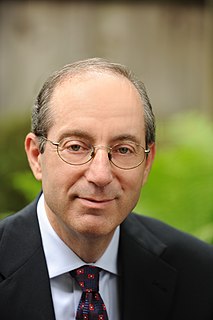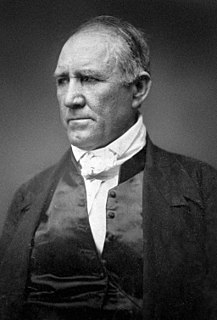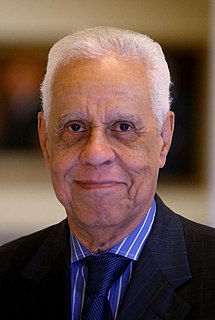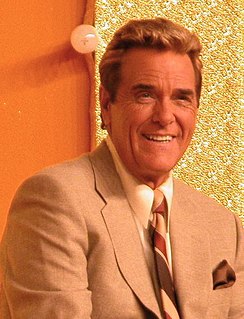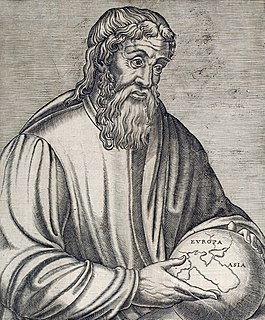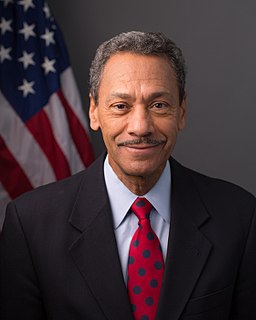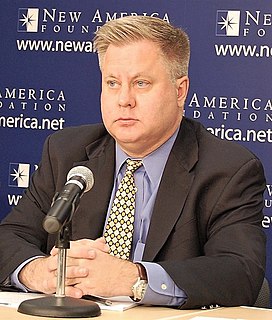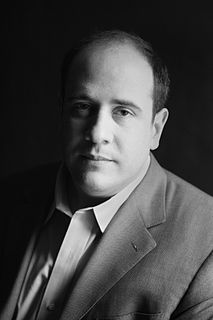Top 1200 Civil Quotes & Sayings - Page 4
Explore popular Civil quotes.
Last updated on December 23, 2024.
If by a "Liberal," they mean someone who looks ahead and not behind, someone who welcomes new ideas without rigid reactions, someone who cares about the welfare of the people - their health, their housing, their schools, their jobs, their civil rights, and their civil liberties - someone who believes that we can break through the stalemate and suspicions that grip us in our policies abroad, if that is what they mean by a "Liberal," then I'm proud to say that I'm a "Liberal."
Civil society people - these are the people - civil society groups are the people who need to monitor the aid to ensure that the aid is directed to what it is supposed to. And in order for them to do so, they need to have the space, they need to have the freedom, and they need to have the right to demonstrate, and to petition their government. They can't do that in Ethiopia; they can't do that in Eritrea; and so this is why I was cautioning that we may be repeating some of our old mistakes.
That was exciting to be able to comment on civil rights. I mean, the civil rights movement that young people don't know about today, but Martin Luther King was considered by the establishment press in the early years of the sit-in movement as a dangerous man, and he was the equivalent at that time as Malcolm X. And he was told to stop his demonstrations; they were against the law and all of that. Now that he's sainted and sanctified we've forgotten.
If the Rev. Martin Luther King Jr.'s civil rights movement made demands that altered the course of American lives and backed up those demands with the willingness to give up your life in service of your civil rights, with Black Lives Matter, a more internalized change is being asked for: recognition.
What it targets is not something that's really looked at a lot in terms of the war. This is stuff that's off the beaten path in terms of what we think of every time you start a Civil War history or a Civil War presentation. It's usually about the military and the soldiers and all that stuff. And this is not. It's the backdrop to a place and a time and circumstances that didn't have anything to do with that.
Everything is done by CONTRACT. It DOESN'T matter whether it's Civil or Criminal. There is NO LAW anymore because there is NO MONEY (Of substance) and since there is NO LAW and since there is NO MONEY everything is done by CONTRACT, it's AGREEMENT OF THE PARTIES. So remember, that theoretically anything that is done COMMERCIALLY in the CIVIL WORLD by any kind of “accounts”, its BASED ON A SIGNATURE.
John Stuart Mill, in his wonderful 1859 book On Liberty, talks about civility. And this is why you should always be concerned about calls for civility. He points out that civility ends up getting defined by the people who are in charge. And you'll notice that when people argue for civility, they tend to actually believe that whatever they say is civil. And if they're angry about it, it's righteous rage. But if you say it and it's kind of sharp or mean, then it's incivil. ... And sometimes, disagreement-to be productive-can't be all that civil.
Civil Engineering is the art of directing the great sources of Power in Nature for the use and convenience of man; being that practical application of the most important principles of natural Philosophy which has in a considerable degree realized the anticipations of Bacon, and changed the aspect and state of affairs in the whole world. The most important object of Civil Engineering is to improve the means of production and of traffic in states, both for external and internal Trade.
Look, I am a Palestinian elected representative from Jericho. If a Palestinian wants to sell his fruit anywhere in the West Bank, he goes to the Israeli civil administration. If a Palestinian sick person wants to leave a hospital, he goes through the Israeli civil administration. Nobody can leave or enter my constituency without Israeli permission. Israel is, in effect, resuming the occupation.
The culture of the State Department is very negative towards a conservative foreign policy. And the model that we all have, of civil servants as neutral careerists who carry out the policy of the elected president, doesn't work nearly the way it should in the State Department. So that there are many people who want to be good civil servants, who want to try and carry out these policies, but are afraid to do so. And I'm not even counting the very small number of conservatives in the State Department who are genuinely at risk.
Generally, the arguments for same-sex marriage go along these lines: 'I have a civil right.' What the homosexual movement wants to do is to hitch their agenda to the civil rights movement, but I point out that this is illegitimate for a number of reasons. Number one, no black person has ever left his black-ness or changed his black-ness, but plenty of people have come out of the homosexual movement. What we need to do is distinguish between race and behavior.
I see a lot of individual action when it comes to environmental questions really as a form of politics as a way of communicating with political leaders, much in the same way that acts of civil disobedience during the civil rights' movement were really acts of political communication, trying to get laws changed rather than based on the thought that the individual action would really change the practices of segregation.
Why did John Wilkes Booth do it? In My Thoughts Be Bloody young historian Nora Titone is one of the few to have genuinely explored this question. In doing so, she has crafted a fascinating psychological drama about one of the central events of the Civil War: the assassination of Abraham Lincoln. This book promises to stimulate lively historical debate, and will be a treat for every Civil War buff who always pondered that haunting question, “what made him pull that trigger?” Bravo on a marvelous achievement.
Civil disobedience is not our problem. Our problem is civil obedience. Our problem is that people all over the world have obeyed the dictates of leaders…and millions have been killed because of this obedience…Our problem is that people are obedient allover the world in the face of poverty and starvation and stupidity, and war, and cruelty. Our problem is that people are obedient while the jails are full of petty thieves… (and) the grand thieves are running the country. That’s our problem.
I declare that civil war is inevitable and is near at hand. When it comes the descendants of the heroes of Lexington and Bunker Hill will be found equal in patriotism, courage and heroic endurance with the descendants of the heroes of Cowpens and Yorktown. For this reason I predict the civil war which is now at hand will be stubborn and of long duration.
I was involved in the civil rights movement way back in the late '50s and through the '60s and '70s. I was doing a civil rights musical here in Los Angeles and we sang at one of the rallies where Dr. Martin Luther King spoke, and I remember the thrill I felt when we were introduced to him. To have him shake your hand was an absolutely unforgettable experience. Even before I could vote, I was involved in the political arena.
I went through the communist children's movement at the age of nine, in 1930, and into the Young Communist League in 1936. The Spanish civil war brought me back. I'd already broken with the communists - or the Stalinists, more precisely - in 1935. But the civil war in Spain and the desire to aid the remarkable people struggling against Fascism brought me back to the Young Communist League, so that I could effectively participate, however far removed from Spain, in their struggle. By 1938 I was ready to be expelled. By 1939 I was expelled.
Obama was elected in a flourish of promise that many in the African-American community believed would help not only to symbolize African-American progress since the Civil War and Civil Rights Acts but that his presidency would result in doors opening in the halls of power as had never been seen before by black America.
As a kid, I was growing up in an era of celebration of the Civil War centennial, with a lot of 'Lost Cause' emphasis on the Confederacy. I used to play Civil War soldiers with my brothers as a child, and my older brother always insisted that he got to be Lee, and I got be Grant. I never knew that Grant won until quite some time had passed.
As Paretsky detailed in her short memoir Writing in an Age of Silence (2007), early optimism buoyed by the civil rights movement of the 1960s and early 1970s has, in her view, all but crumbled in the face of a bombardment of sadism and misogyny, the withholding of civil liberties, and the nation's move from proud speech into near-deafening silence.
In the South, prior to the Civil Rights movement and the 1964 Civil Rights Act, democracy was the rule. The majority of people were white, and the white majority had little or no respect for any rights which the black minority had relative to property, or even to their own lives. The majority - the mob and occasionally the lynch mob - ruled.
I've just always had a personal fascination with the myth of Abraham Lincoln. And once you start to read about him and the Civil War and everything leading up to the Civil War, you start to understand that the myth is created when we think we understand a character and we reduce him to a kind of cultural national stereotype.
We were born with natural rights. We don't need civil rights. [African-Americans] don't need civil rights. They don't need them. They have inalienable rights granted by God in the Constitution. I mean, I'm discriminated against all the time. I don't care. It doesn't bother me. [I'm discriminated against] because I'm old. I'm too old to get a job as a game show host. They say, well, the guy's 71 and in five years he'll be 76. And I'm a one per center, and I'm absolutely discriminated against as a one per center.
Politics and the pulpit are terms that have little agreement. No sound ought to be heard in the church but the healing voice of Christian charity. The cause of civil liberty and civil government gains as little as that of religion by this confusion of duties. Those who quit their proper character to assume what does not belong to them are, for the greater part, ignorant both of the character they leave and of the character they assume.
Particularly black Americans, many of them, from quotes that I have seen and conversations I've had, are sort of insulted that the civil rights movement is being hijacked - the rhetoric of the civil rights movement is being hijacked for something like same sex marriage. Black Americans tend to have a higher degree of religiosity.
I think there's something very dark in the South African psyche. I think we live a lot of the time in a state of a very low-grade civil war; the levels of violence in South Africa are extremely high. In a way, the civil war that never happened is being played out in a covert way, so we live with a lot of very ugly things.
I spent my entire career trying to protect the Constitution, the civil rights and the civil liberties of American citizens and people who are here lawfully. I, as chair of this commission, would not be a party to any system that I felt was an unpardonable intrusion into the private lives of people. If I felt that what we are recommending would be such an intrusion I can assure you that recommendation would never have seen the light of day, not even as a pilot program.
Some 2,800 Americans went to Spain [during the Spanish Civil War], and it was, by far, the largest number of Americans before or since who've ever joined somebody else's civil war. I think they were primarily people who were deeply alarmed by the menace of fascism. They saw this on the horizon. I quote one volunteer, Maury Colow of New York, who said, "for us it was never Franco, it was always Hitler."
The American states have gone far in assisting the progress of truth; but they have stopped short of perfection. They ought to have given every honest citizen an equal right to enjoy his religion and an equal title to all civil emoluments, without obliging him to tell his religion. Every interference of the civil power in regulating opinion, is an impious attempt to take the business of the Deity out of his own hands; and every preference given to any religious denomination, is so far slavery and bigotry.
The Civil Rights Act of 1964 was the most sweeping civil rights legislation of its day, and included women's rights as part of its reforms. Ironically, the section on women's rights was added by a senator from Virginia who opposed the whole thing and was said to be sure that if he stuck something about womens' rights into it, it would never pass. The bill passed anyway, though, much to the chagrin of a certain wiener from Virginia.
There is a moral virtue, a moral fidelity, ability and honesty, which other men, besides church members, are, by good nature and education, by good laws and good examples nourished and trained up in; so that civil places and trust and credit need not be monopolized into the hands of church members (who sometimes are not fitted for public office), while all others are deprived and despoiled of their natural and civil rights and liberties.
History of America, Part I (1776-1966): Declaration of Independence, Constitutional Convention, Louisiana Purchase, Civil War, Reconstruction, World War I, Great Depression, New Deal, World War II, TV, Cold war, civil-rights movement, Vietnam. History of America, Part II (1967-present): the Super Bowl era. The Super Bowl has become Main Street’s Mardi Gras.
The Democrats co-opted the credit for the Civil Rights Act of 1964. But if you go back and look at the history, a larger percentage of Republicans voted for that than did Democrats. But a Democrat president signed it, so they co-opted credit for having passed the Civil Rights Act of 1964 and the Voting Rights Act of 1965.
Three classes inhabited the city (Alexandria in Egypt): first the Aegyptian or native stock of people, who were quick-tempered and not inclined to civil life; and secondly the mercenary class, who were severe and numerous and intractable...; and, third, the tribe of the Alexandrians, who also were not distinctly inclined to civil life, and for the same reasons, but still they were better than those others, for even though they were a mixed people, still they were Greeks by origin and mindful of the customs common to the Greeks.
How blind to believe the civil rights movement ever ended. The civil rights movement never ends, and it never will. It has been marching since the beginning of time. Where Martin Luther King started is where Gandhi left off, and where he started, Abe Lincoln left off, and before that Whitfield all the way back to Moses. God has not moved. We have. But it is never too late. We are not at the mercy of these events. We can alter the course of history. We can stand against the dangerous arc of this story. But we need people who are willing to speak truth.
What happened in Ukraine? The coup d'état in Ukraine has led to a civil war, because, yes, let's say, many Ukrainians no longer trusted President Yanukovych. However, they should have legitimately come to the polls and voted for another head of state instead of staging a coup d'état. And after the coup d'état took place, someone supported it, someone was satisfied with it, while others were not. And those who did not like it were treated from the position of force. And that led to a civil war.
Anyone who asserted wrong teachings, anyone serving the devil or his demons, earned instead an equally remarkable antagonism. In their official high meetings together, Christians thus could not keep their own disagreements within the bounds of civil language; their continual quarrels required the intervention of the civil authorities; and all this was well known and noted by friends and foes alike.
Two households, both alike in dignity In fair Verona, where we lay our scene From ancient grudge break to new mutiny Where civil blood makes civil hands unclean. From forth the fatal loins of these two foes A pair of star-cross'd lovers take their life Whose misadventured piteous overthrows Do with their death bury their parents' strife.
I think one of the tragedies of the civil rights movement was because the civil rights movement became so court-focused, I think that there was a tendency to lose track of the political and community organizing, and activities on the ground, that are able to put together the actual coalitions of power throughout which you bring about redistributive change. And in some ways, we still suffer from that.
Civil rights are those which appertain to man in right of his being a member of society. Every civil right has for its foundation some natural right pre-existing in the individual, but to the enjoyment of which his individual power is not, in all cases, sufficiently competent. Of this kind are all those which relate to security and protection.
Republicans have reached out so much to black Republicans because it's part of our tradition. Blacks have been in this nation longer than most other Americans with the possible exception of white Anglo-Saxon Protestant. The first blacks in Congress and the first black Governor were all Republicans. It was Republicans who fought the Civil War over slavery and who introduced the Civil Rights legislation over the next hundred years.
Laws which authorize and promote abortion and euthanasia are therefore radically opposed not only to the good of the individual but also to the common good; as such they are completely lacking in authentic juridical validity. Disregard for the right to life, precisely because it leads to the killing of the person whom society exists to serve, is what most directly conflicts with the possibility of achieving the common good. Consequently, a civil law authorizing abortion or euthanasia ceases by that very fact to be a true, morally binding civil law.
The threats are coming to this country, which will, of course, increase the massive industry known as the anti-terrorism industry, and crush our civil liberties and civil rights, And it's devouring our priorities here in communities all over the country which are in such disrepair and are so neglected in terms of public works and public services.
Civil libertarian activists are found overwhelmingly on the left. Their right-wing brethren have been concerned with issues more important than civil rights, voting rights, abuses by police and the military, and the subordination of politics to religion - issues like the campaign to expand human freedom by turning highways over to toll-extracting private corporations and the crusade to funnel money from Social Security to Wall Street brokerage firms.
My friends, to those who say that we are rushing this issue of civil rights, I say to them we are 172 years late. To those who say that this civil-rights program is an infringement on states’ rights, I say this: The time has arrived in America for the Democratic Party to get out of the shadow of states' rights and to walk forthrightly into the bright sunshine of human rights.
Taxation, the very thing that had triggered the British civil wars, would do so again, this time in America. The taxes may have been different, but the result would once again be disaster. What happened in America was really round two of those wars - the civil war of the British Empire, with the Hanoverians playing the part of the Stuarts, and the Americans the heirs of the revolutionaries, of Cromwell and of William III, the inheritors of a true British liberty, that had somehow got lost in its own motherland.
I went to live in Barcelona in 1975, when I was twenty. Even before I went there, I knew more about the Spanish Civil War than I did about the Irish Civil War. I liked Barcelona, and then I grew to like a place in the Catalan Pyrenees called the Pillars, especially an area between the village of Flavors and the high mountains around it.
My family was very engaged in the world around us. My father was an African Methodist Episcopal minister and an immigrant from Panama. He was deeply involved in civil rights causes, which scared my mother - she was also an immigrant, from Barbados, who had her hands full with six kids, and she worried that my father would get deported. But because of his passion for politics and civil rights, we paid close attention to current events. We would watch political conventions together - for fun!
America is a land of big dreamers and big hopes. It is this hope that has sustained us through revolution and civil war, depression and world war, a struggle for civil and social rights and the brink of nuclear crisis. And it is because our dreamers dreamed that we have emerged from each challenge more united, more prosperous, and more admired than before.
The civil rights movement didn't deal with the issue of political disenfranchisement in the Northern cities. It didn't deal with the issues that were happening in places like Detroit, where there was a deep process of deindustrialization going on. So you have this response of angry young people, with a war going on in Vietnam, a poverty program that was insufficient, and police brutality. All these things gave rise to the black power movement. The black power movement was not a separation from the civil rights movement, but a continuation of this whole process of democratization.

















